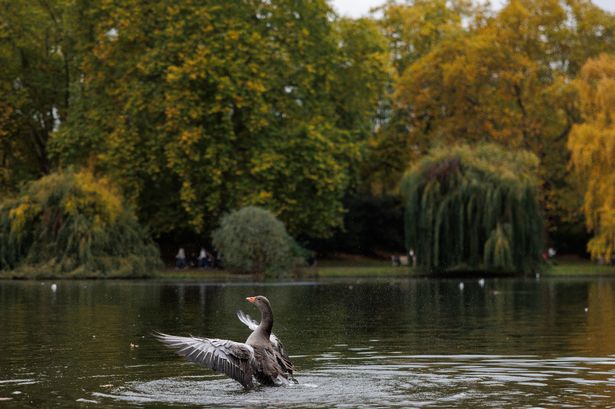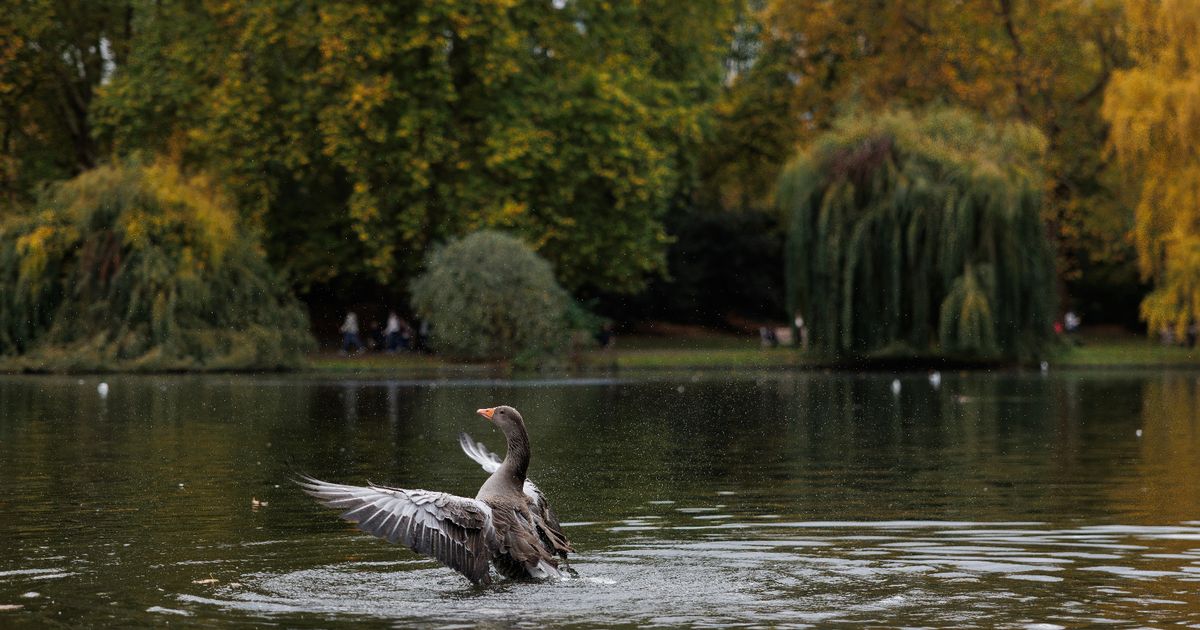Official data has been published The RSPCA has issued advice(Image: Getty Images)
The RSPCA has issued advice(Image: Getty Images)
Nine new cases of bird flu have been confirmed in Greater Manchester in the last two weeks, official data shows.
Statistics from the Department for Environment, Food & Rural Affairs reveal a case of avian influenza recorded in Salford, alongside three in Wigan, two in Trafford, two in Manchester and one in Oldham.
They feature wild birds including a peregrine falcon – in Wigan – a herring gull, mute swans and Canada geese. No exact locations have been referenced.
Trafford council, meanwhile, confirmed a recent case. In a statement, the council said the risk to the public was ‘very low’, but urged people to ‘help protect wildlife’.
Join the Manchester Evening News WhatsApp group HERE
Sale Water Park has been at the centre of recent cases, with a number of birds there having died.
Avian influenza, commonly known as bird flu, can be carried by wild birds migrating to the UK from mainland Europe during the winter.
A Trafford council spokesperson said: “Bird flu has been detected in a number of wild birds across Great Britain, including the North West of England. This is normal for this time of year as wild birds carry the disease when migrating to the UK from Europe and Asia.
“Wild birds are susceptible to a range of diseases and injuries, and not all dead birds will have been infected with bird flu.
 Fire crews at Sale Water Park in a bird flu alert(Image: Gaynor Mullin-McGlashan)
Fire crews at Sale Water Park in a bird flu alert(Image: Gaynor Mullin-McGlashan)
“The risk to the general public’s health is very low, but we are urging people to be vigilant when enjoying the water park.”
Bird flu in people is rare, although some viruses, like H5N1 or H7N9, have been associated with human disease. Symptoms can vary depending on the strain, but most infections lead to a flu-like illness with fever, body aches, cough, sore throat and runny nose.
Other symptoms can include conjunctivitis, which causes red, sore eyes that produce discharge.
The RSPB said bird flu mostly spreads from bird to bird through direct or indirect contact with infected saliva, nasal secretions or droppings, as well as through scavenging.
The RSPCA has urged the public to take care with wild birds.
Anyone seeing a bird they believe is sick or injured shouldn’t touch it and avoid all contact. Dead birds also shouldn’t be touched.
For the latest stories and breaking news visit manchestereveningnews.co.uk. Get the latest headlines, features and analysis that matter to you by signing up to our various Manchester Evening News newsletters here.
You can also get all your favourite content from the Manchester Evening News on WhatsApp. Click here to stay up to date with the latest.Follow us on X @mennewsdesk for all the latest stories and updates on breaking incidents from across the region and beyond, as well as on our Facebook page here.If you prefer reading our stories on your phone, consider downloading the Manchester Evening News app here, and our newsdesk will make sure every time an essential story breaks, you’ll be the first to hear about it.
